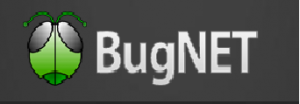Every IT project needs a bug tracking system to ensure that there is no harm to the successful and timely completion of project. Bug tracking tools work to find and fix problems within thousands of lines of codes. Incorporating bug tracking within your workflow is a good way to manage critical issues.
Below is the list of top 7 Bug Tracking Tools:
1) Bugzilla
Although there are many best bug tracking tools in the market, my all time favourite is Bugzilla for offering a host of features in a single tool. Bugzilla is open source defect tracking tool which is originally designed for Mozilla products. Bugzilla is written in Perl and supports databases like: MySQL, Oracle, etc. It is a strongly recommended tool and is used by big names such as Mozilla, Facebook, RedHat, and lots more. If you are new to use this tool, then Bugzilla provides you Demo options for 30 days of use.
- Bug Tracking
- Bug Reporting
- Time Tracking
- Email Notifications
- File Attachment
- Printout view with CSV, Spreadsheet and XML Format
- Graphs and Charts Facility
- Advanced Search Guidelines
- Sanity Check for Database
Latest Release Versions:
- Bugzilla 4.5.4, 4.4.4, 4.2.9, and 4.0.13 [2014 Apr 18]
- Bugzilla 4.5.3, 4.4.3, 4.2.8, and 4.0.12 [2014 Apr 17]
- Bugzilla 4.5.2, and 4.4.2 [2014 Jan 27]
2) Mantis
Mantis is a simple, user friendly, and open source Web-Based Bug Tracking Tool. Mantis tool name is given on the name of a famous insect called as Mantodea. This tool is written in PHP language and supports all databases like: MYSQL, MS SQL, PostgreSQL, etc.
- Time Tracking
- Email Notifications
- Access Control
- Customizable
- Plugin Support
- Project Management
- Revision Control Integration
Latest Release Versions:
- MantisStats 1.4.1 [2014 Apr 8]
- MantisStats 1.3.2 [2014 Jan 22]
- MantisStats 1.3.1 [2014 Jan 16]
3) Trac
Trac is open source tool written in Python programming language. Trac tool is taken care by Edgewall Software.
- User Management
- Project Management
- Bug Tracking
- Wiki Support
- Email Notifications
- Plugin Support
- Interface Localizations
- Supports Multiple Platforms
- Roadmap and Milestone Tracking
Latest Release Versions:
- Trac 1.0.1
4) Redmine
Redmine is not purely Issue Tracking Tool but very helpful in creating tasks, bugs/defects monitoring. Redmine is written in Ruby on Rails.
- Gantt Chart and Calendar Support
- Project Management
- Issue Tracking
- Email Notifications
- Time Tracking
- Supports Multiple Databases and Platforms
- Supports Multiple Projects
Latest Release Versions:
- Redmine 2.5.1 [2014 Mar 29]
- Redmine 2.4.5 [2014 Mar 29]
5) JIRA
If you searching for reliable Bug Tracking tool, then JIRA can be a product for you from Atlassian that supports agile projects. It is open source Bug Tracking Tool.
- Project Tracking
- Code Integration
- Add-ons Facility
- Project Repository
Latest Release Versions:
- JIRA 6.2 25 [2014 Feb 25]
6) BugNet
BugNet is written in ASP.Net language and is a cross-platform tool. BugNet uses MYSQL database.

image credit: http://www.bugnetproject.com/
BugNet Features:
- Bug Tracking Tool
- Database Support
- Email Notifications
- Issue Capturing Facility
- Issue Management
- Milestone Management
Latest Release Versions:
- BugNET Pro 1.4
7) Fossil
Fossil is easy to use as well easy to install it. This tool is written in C programming language and supports SQLite database.

image credit: https://www.fossil-scm.org
Fossil Features:
- Wiki Service
- Cross Platform
- Bug Tracking
- Web Interface
Latest Release Versions:
- Fossil 1.28
CONCLUSION
In addition to these tools, some companies have their own internal bug tracking systems as well. Our purpose of writing this post is to get you introduced to the top bug tracking tools available with a brief description of their use.
What bug tracking tools do you use? Are they any other tools which should have been included in this list? Share your views in the comments below.





